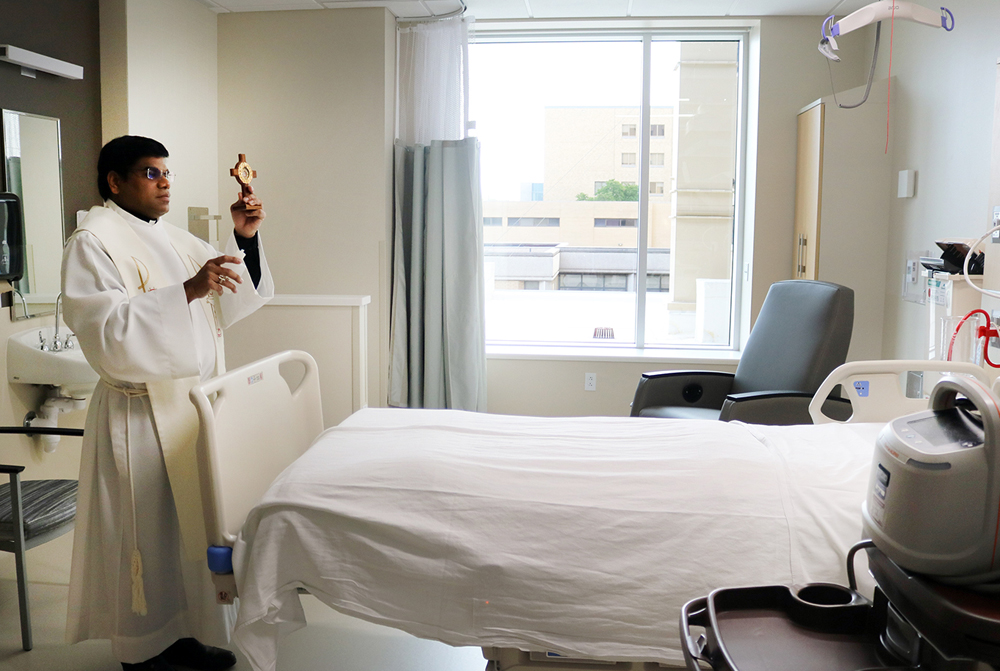Officials at HSHS St. John’s Hospital in Springfield on Thursday christened its recently completed $17.2 million intensive care unit expansion and renovation.
The 28,100-square-foot expansion includes 28 new patient rooms, with a net addition of 10 cardiovascular intensive care unit and six ICU rooms.
“Enhancing and improving the use of space for families and colleagues is so important to creating a better healing environment,” Matt Fry, HSHS St. John’s Hospital CEO, said in a statement. “More natural light, larger waiting areas and rooms, closer supply rooms, additional bathrooms — all these details improve comfortability and care for our patients, families and colleagues.”
The project brings the total number of intensive care patient beds at the hospital to 64.
Polly Hohenbery, director of adult critical care services, spoke to Health News Illinois about the project and how it aims to improve care in the region.
Edited excerpts below.
HNI: Tell me more about the new unit.
PH: In 2019, we received notice that we would be doing an upgrade to our ICU, adding additional beds as well as expanding the size of our rooms that we had. So we needed a refresher in our current space and then, just due to census, really needed additional critical care rooms. So it worked out great with the timing of the pandemic that we were able to go ahead and actually start construction.
What we did was we completely redid one entire side of our ICU and then added additional beds to our CVICU. So these rooms are extremely spacious. The pieces of equipment over the years have become rather large … We needed additional space to be able to do those procedures at the bedside and have the capability to have all the individuals that needed to be present for those procedures to have enough room to function.
HNI: What is the demand for these services?
PH: We actually have had a pretty good-sized census all through COVID. Everybody needed our critical care services, but … there has still been quite a need for critical care, just in our surrounding area. We get a lot of patients from our outlying facilities, smaller hospitals that may not have the resources to care for somebody that’s going to need critical care for an extended period of time. We do get transfers in, and so we’ve had plenty of business. To be able to accommodate what we need, this is just another way for us to serve our community.
HNI: Were you facing capacity challenges before?
PH: In critical care, sometimes you get these surges of different needs. Whether it’s stroke or heart attack or respiratory illnesses, it goes in surges. And so we would rely heavily on our CVICU whenever we needed those cardiac services. For stroke, we would have to lean a little bit harder in our general ICU. Just being able to expand both areas so they can help each other offload some of the medical issues whenever one area or the other has those surge times, whether it be cardiac or neuro.
HNI: How do you see this improving patient care throughout the region?
PH: Previously, just the way that our units were set up, we were kind of stationed at different locations within the hospital. With this construction project being completed, it’s going to keep our resources on one floor for ICU and one for CVICU. It’s going be great for our colleagues, going to be great for our physicians. And then just being able to ensure that we have a bed available when somebody needs us.
